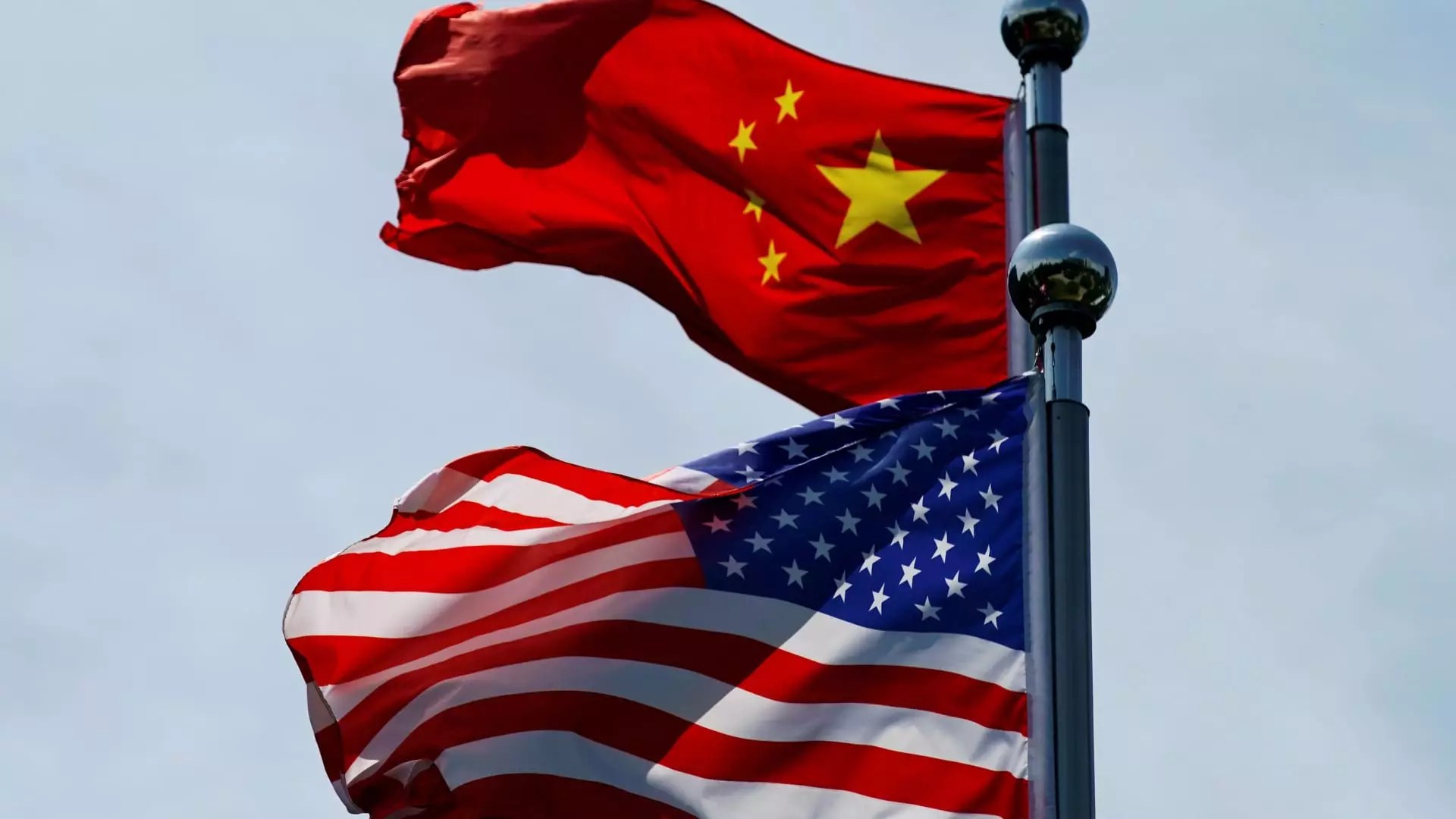China’s grip on rare earth minerals, essential for everything from advanced electronics to military technology, is becoming increasingly concerning. As evidenced by the recent high-level call between U.S. President Donald Trump and Chinese President Xi Jinping, the global economy’s dependency on these critical materials is a double-edged sword. The conversation, designed to mend fences after months of trade tensions, ultimately underscored an ongoing crisis that threatens production timelines for a wide array of industries. A recent survey indicated that about 75% of U.S. businesses dependent on rare earths will exhaust their supplies within three months, shedding light on the precarious situation facing manufacturers across various sectors.
The irony is palpable: while both countries aim to stabilize their trade relations, the path continues to be riddled with obstacles largely born from China’s monopolistic control. These constraints are particularly relevant as the summer approaches, raising fears that industries crucial to both economies may face severe slowdowns or even complete halts in production.
China’s Strategic Maneuvering
China’s recent export controls on seven rare earth elements exemplify a calculated strategy rather than mere reactionary measures. The timing of these restrictions suggests a broader political agenda meant to leverage its dominant position in global supply chains. While the Chinese government claims these measures are non-discriminatory, the reality is that they serve to reinforce China’s foothold in industries that enable both civilian and military advancements.
These tactics have not gone unnoticed globally. Analysts indicate that restrictions could extend beyond U.S. borders, already impacting European manufacturers. Companies like Suzuki Motor have been forced to shutter production lines temporarily, illustrating the domino effect of China’s policies. As businesses scramble to address potential shortages, the prospect of supply chain disruptions looms larger than ever, raising questions about how reliant countries have become on a single source for these vital resources.
Trade Talks: Hope or Illusion?
President Trump and his advisers may still harbor hopes for a trade deal that could alleviate restrictive measures on rare earth exports. However, the lack of concrete outcomes following their discussions raises skepticism. While both sides reached a trade agreement that initially seemed promising, the absence of any definitive rollback on rare earth restrictions rendered the agreement nearly superficial for many suppliers.
This trend toward incremental improvement rather than holistic resolution indicates a troubling reality: negotiations are often more about appeasement than actual progress. A senior economist from Natixis, Jianwei Xu, suggests that the trade dialogue may revert to previous circumstances where tariffs remain low, but critical issues around rare earths and technological exports remain unresolved. In essence, what is presented as progress may only be a temporary fix.
The Global Ripple Effect
The ramifications of China’s rare earth tightrope are far-reaching and fraught with tension. European industries, particularly automotive companies, are reporting challenges in receiving the necessary export licenses. With about 25% approval for license applications, many firms face the prospect of crippling supply issues—reflecting an impending crisis that echoes the fears felt in the U.S. For Western companies, the harsh reality is that reliance on China’s rare earths could lead to severe operational setbacks long before any trade negotiations bear fruit.
The complexities don’t end there. China’s tightening grip mirrors a broader geopolitical trend where nations vie for control over critical resources, igniting fears of prolonged scarcity in a market already fraught with challenges. As trade discussions meander without resolution, manufacturers worldwide find themselves in a precarious position, teetering on the brink of disaster in their supply chains.
China’s Global Game of Chess
China’s approach to rare earth elements seems to be a calculated game of chess, on multiple boards. On one level, it distresses competitors by demonstrating its capacity to disrupt global supply chains at will; on another, it seeks to assuage domestic concerns about foreign dependency. In this light, the call between Trump and Xi may have been less about reconciliation and more about sustainable posturing in a game with no clear winner.
As crises unravel in sectors reliant on these rare earth minerals, it’s crucial to question whether the U.S. and its allies are prepared to confront this looming threat with adequate strategic solutions. Without a coherent response, countries may find themselves increasingly vulnerable to the whims of a single nation that controls a resource critical to their socio-economic viability.
The stakes couldn’t be higher; our industries’ future, innovation, and economic stability are intricately woven into this high-stakes game. It seems that both the U.S. and its allies are left grappling with the possibility that dependence on China’s rare earth dominance could lead to a sobering reckoning, impacting not only industries but national security implications in the years to come.

